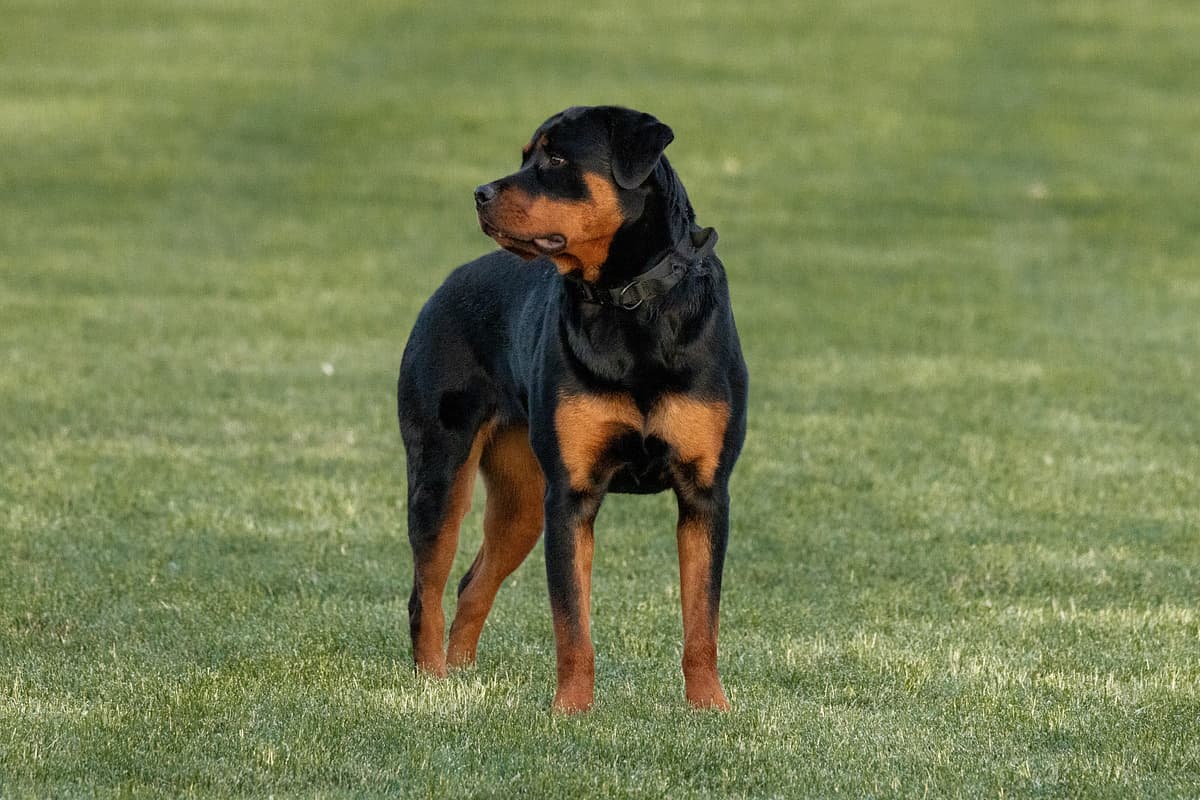Rottweiler vs French Bulldog
Discover the differences between Rottweiler and French Bulldog to make the best choice for your situation.
Try different breeds

Rottweiler
Confident, loyal, and protective, this powerful companion thrives with purpose and bonds deeply with its family. Highly intelligent and alert, always eager to please and protect loved ones.

French Bulldog
Compact, playful, and affectionate, this breed charms with its expressive face and easygoing personality. Ideal for city living, French Bulldogs make steadfast companions and loving family pets.
Quick comparison
Large
50–60 kg
Short, dense
9–10 years
35–48 kg
High energy
Small
9–13 kg
Short, smooth
10–12 years
8–12 kg
Low activity needs
Personality & behavior
Compare the personality traits and behavioral characteristics of both breeds.
Rottweiler
Often reserved, loyal with familiar people
Quick learner, responds well to training
Active, enjoys regular exercise and tasks
Moderately playful, enjoys interactive games
Adjusts well to various living environments
French Bulldog
Affectionate with people and enjoys companionship
Learns routines quickly but can be stubborn
Prefers short play sessions and moderate walks
Enjoys interactive games and gentle roughhousing
Comfortable in apartments and various environments
Care needs
Exercise, grooming, and daily care requirements
Rottweiler
Hip dysplasia, elbow dysplasia
French Bulldog
Brachycephalic syndrome, skin allergies
Suitability
How well each breed fits different living situations and families
Rottweiler
Challenging for novices
Needs experienced handling and consistent training to thrive
Space limitations
Needs room to move and regular exercise for well-being
Excellent fit
Enjoys physical activity and benefits from daily exercise routines
Supervision needed
Strong and large, may be overwhelming for small children without close supervision
May need caution
Can be territorial or dominant without early socialization with other pets
Not recommended
Dislikes being left alone and may develop behavioral issues if isolated
French Bulldog
Great choice
Easygoing temperament and manageable size suit first-time owners well
Perfect fit
Quiet and compact, they adapt well to small apartments
Not ideal
They tire quickly and don’t match very active lifestyles
Highly suitable
Gentle and playful, they are patient with young children
Very friendly
Generally sociable and get along with other pets if introduced properly
Prone to anxiety
They dislike being left alone for long periods and may develop separation issues
Breed strengths
What each breed excels at and their best qualities
Rottweiler
- Confident and self-assured demeanor
- Strong protective instincts toward family
- Highly trainable and responsive to commands
- Physically robust with great endurance
- Loyal and forms close bonds with owners
French Bulldog
- Affectionate with families and children
- Adaptable to apartment living
- Minimal grooming requirements
- Generally quiet and not prone to barking
- Strong loyalty to owners
Challenges & considerations
Potential challenges and considerations for each breed
Rottweiler
- Can be wary of unfamiliar people
- Needs consistent, firm training and guidance
- Prone to territorial and guarding behaviors
- Requires significant physical and mental exercise
- May develop aggression if poorly socialized
French Bulldog
- Prone to breathing difficulties due to flat face
- Sensitive to extreme heat and cold
- May develop separation anxiety
- Stubborn during training sessions
- High risk of obesity without portion control
Ready to choose your perfect breed?
Learn more about each breed or compare other breeds to find the perfect match for your lifestyle.
Discover more helpful tools
Make use of our other free tools to get the most out of your pet experience
